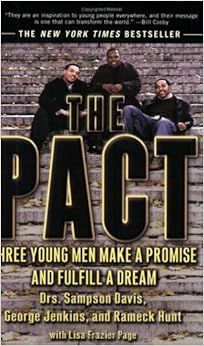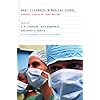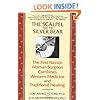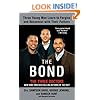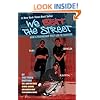Amazon.com Review
As teenagers from a rough part of Newark, New Jersey, Sampson Davis, Rameck Hunt, and George Jenkins had nothing special going for them except loving mothers (one of whom was a drug user) and above-average intelligence. Their first stroke of luck was testing into University High, one of Newark's three magnet high schools, and their second was finding each other. They were busy staying out of trouble (most of the time), and discovering the usual ways to skip class and do as little schoolwork as possible, when a recruitment presentation on Seton Hall University reignited George's childhood dream of becoming a dentist. The college was offering a tempting assistance package for minorities in its Pre-Medical/Pre-Dental Plus Program. George convinced his two friends to go to college with him. They would help each other through. None of them would be allowed to drop out and be reabsorbed by the Newark streets.
Although this inspiring and easy-to-read book would be enjoyed by any teenager or educator, it seems perfect for minority youth, especially young men of junior high and high school age, who may lack more immediate role models. If the ordinary boys who made this pact could survive college and medical school by sticking together, then so can others. --Regina Marler
--This text refers to an out of print or unavailable edition of this title.
From Publishers Weekly
Jenkins, Davis and Hunt grew up in and around the projects of Newark, N.J., a place decimated by crack. "The sounds of gunshots and screeching cars late at night and before dawn were as familiar to us as the chirping of insects must be to people who live in the country." The three attended high school together in the mid-'80s and made a pact to attend medical school together. "We didn't lock hands in some kind of empty, symbolic gesture... We just took one another at his word and headed back to class, without even a hint of how much our lives were about to change." Against incredible odds the almost complete absence of male role models, a history of substance abuse in two of the families, and even incarcerations the trio made good on their word and now practice medicine. Told in alternating first-person chapters, the story of these young men's struggle has remarkable clarity and insight. In extremely accessible prose, the authors articulate the problems they faced: "On the streets where I grew up, you didn't worry about consequences. If someone disrespected you, you beat his ass. Period," says Hunt; while Jenkins recalls, "Sometimes it felt surreal, walking past the drunks, dealers, and addicts on my way home from dental school with a pile of books." Although it is a memoir (which, by nature, is often self-serving), this book's agenda is far from hidden and its urgency is undeniable: through their pact, Davis, Jenkins and Hunt achieved success, and if they did it, others can, too. Agent, Joann Davis. (May 13) Forecast: Books about male friendship are rare. This fills the void nicely, and should be a strong seller, especially among African-American readers.
Copyright 2002 Reed Business Information, Inc.
--This text refers to an out of print or unavailable edition of this title.
